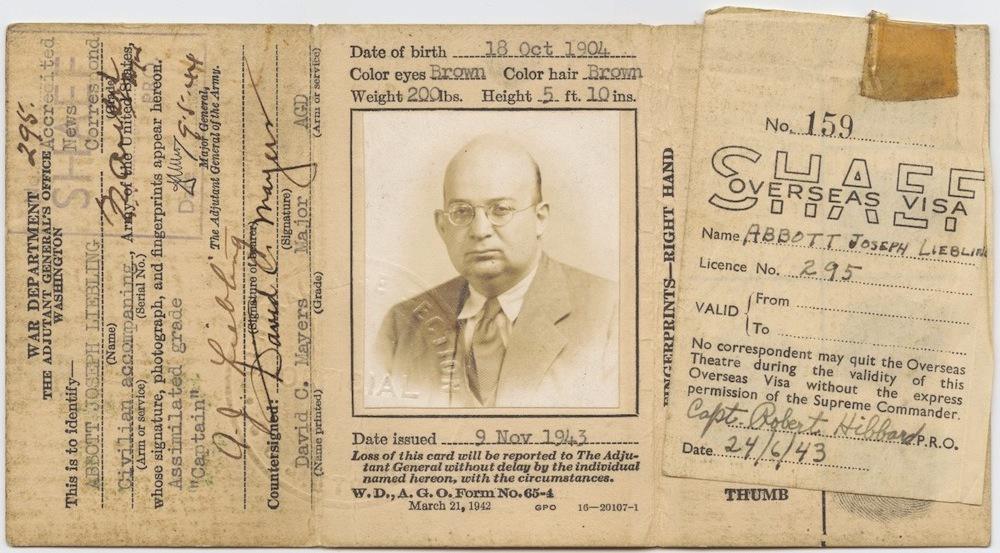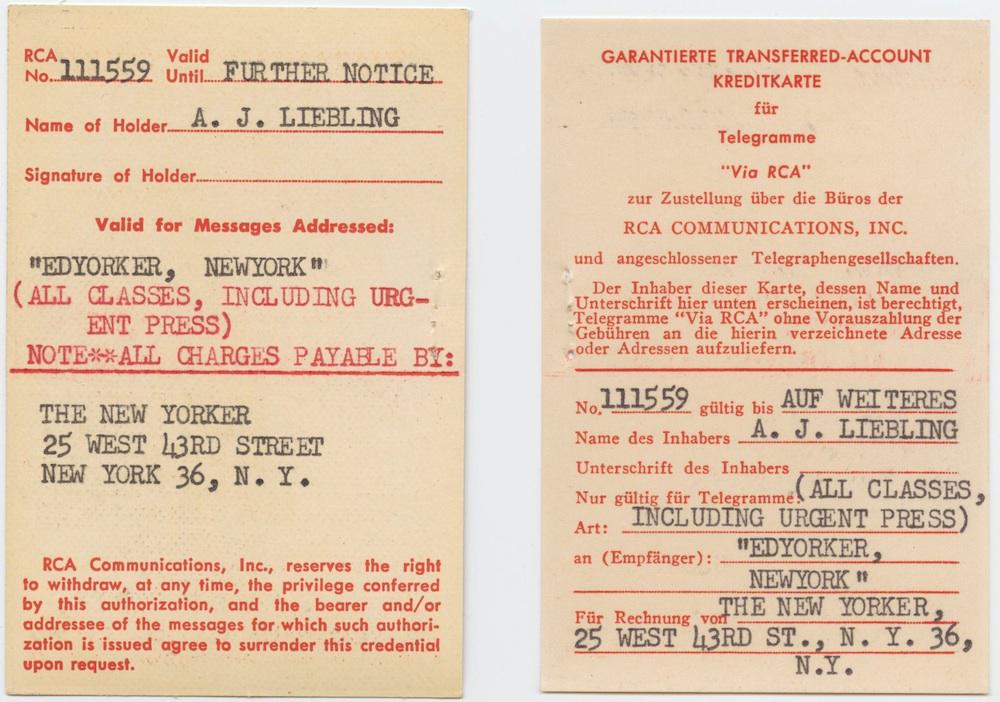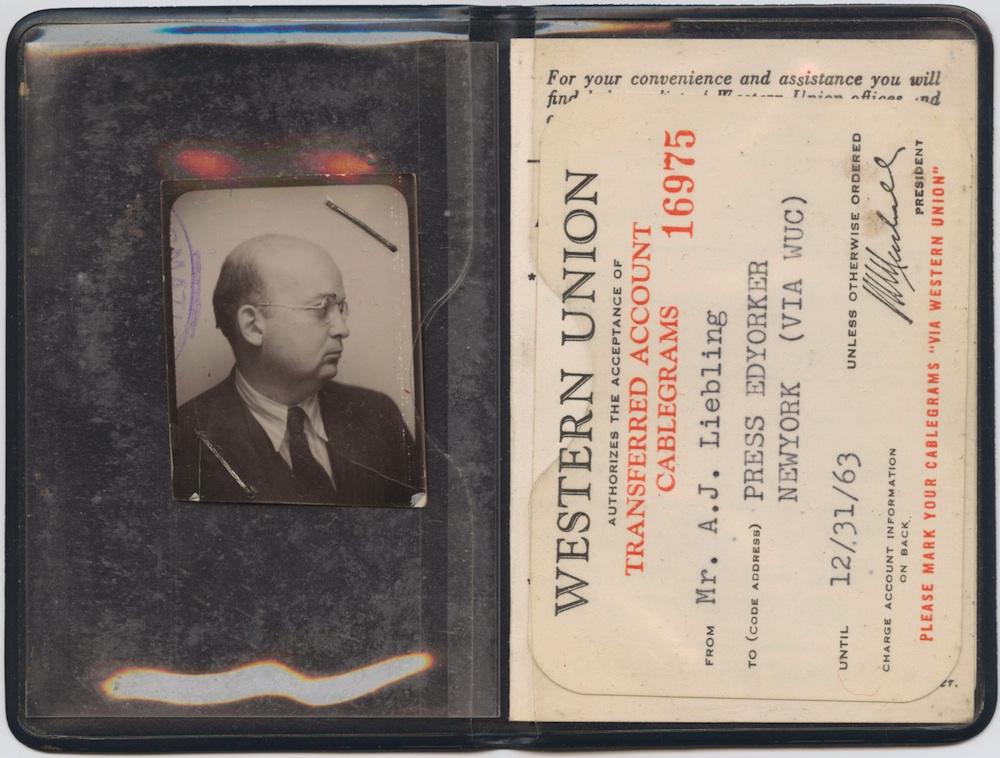The Vault is Slate’s history blog. Like us on Facebook, follow us on Twitter @slatevault, and find us on Tumblr. Find out more about what this space is all about here.
New Yorker writer A.J. Liebling carried these papers while reporting in Europe during World War II, and in the postwar era.
Liebling sent dispatches back to the magazine from 1939 through 1944. He saw the fall of Paris, the Normandy landing, and the liberation of Paris firsthand. (On the website of the Library of America, which published a collection of Liebling’s war writings in 2008, you can read a PDF of Liebling’s September 1944 dispatch from the liberation of Paris.)
The government visa and pass showed that Liebling had been accredited by the War Department. Accreditation was a process that, historian of journalism Michael Sweeney writes, “acted as a contract” between the correspondent and the Army or Navy. The writer agreed to abide by military censorship and rules, and the military agreed to transport the writer and facilitate access.
The accredited correspondent would be considered a captain during his or her time with the service—this rank, Sweeney writes, “allowed them to mess with officers and facilitated POW exchanges if taken prisoner.” Liebling’s papers list that rank on the left-hand side.
In a 1963 introduction to a collection of his war writings, Liebling wrote:
The wars were the central theme of my life from October, 1939, until the end of 1944, and I sometimes feel a deplorable nostalgia for them…The times were full of certainties: we could be certain we were right—and we were—and that certainty made us certain that anything we did was right, too. I have seldom been sure I was right since.
I’ve included the Cornell University Library’s digitized copies of Liebling’s RCA and Western Union credit account cards below, though I think they may date to his postwar reporting trips to Europe (see the expiration date on the Western Union card, and the German language on the RCA card). These allowed Liebling to send messages back to 43rd Street on the New Yorker’s dime.

A.J. Liebling collection, Division of Rare and Manuscript Collections, Cornell University Library.

A.J. Liebling collection, Division of Rare and Manuscript Collections, Cornell University Library.

A.J. Liebling collection, Division of Rare and Manuscript Collections, Cornell University Library.